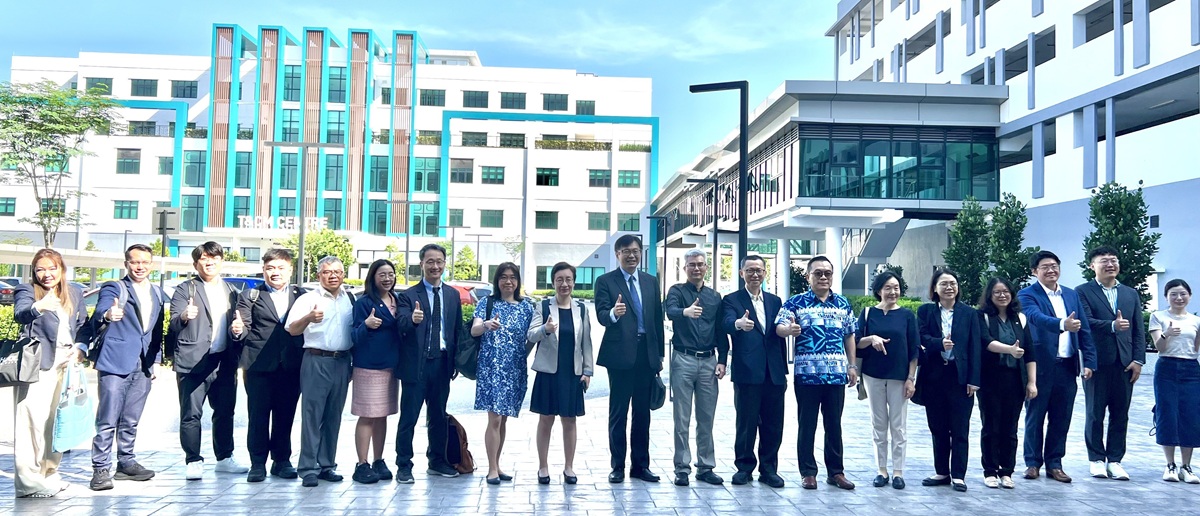The 14th Annual Meeting of the Global University Network of Traditional Medicine (GUNTM) in conjunction with The International Conference on AYUSH and Chinese Medicine was successfully held on July 5–6, 2025, at Universiti Tunku Abdul Rahman (UTAR), a leading private university in Malaysia. This year’s event was co-hosted by Prof. Hung-Rong Yen, Chief Executive Officer of GUNTM and Dean of the College of Chinese Medicine, China Medical University (Taiwan), and Prof. Te Kian Keong, Professor of Chinese Medicine and Director of the T&CM Centre at UTAR (Malaysia).
The first day of the conference welcomed global leaders from academic institutions representing Korea, Hong Kong, China, Japan, Vietnam, Thailand, Malaysia, Singapore, India and Taiwan. The meeting began with opening remarks by Prof. Hung-Rong Yen, followed by welcome addresses from Ir. Prof. Dato’ Dr. Ewe Hong Tat, President of UTAR; Prof. Dr. Thong Meow Keong, Dean of the M. Kandiah Faculty of Medicine and Health Sciences; and Prof. Te Kian Keong, who also chaired the second day’s international conference.
During the meeting, the network presented membership certificates to each institution, including new observer member, Nanyang Technological University (NTU) of Singapore, which launched the country’s first university-awarded Chinese medicine bachelor’s program in 2024. The board session focused on strengthening GUNTM’s role in advancing global education, research, and clinical development in traditional medicine, as well as fostering broader international collaboration and membership expansion.
On July 6, the International Conference on AYUSH and Chinese Medicine drew nearly 300 participants, featuring a full day of academic exchange and dialogue.
The morning session began with a keynote speech by Prof. Yu-Chen Lee, Director of the Graduate Institute of Acupuncture Science at China Medical University, presenting Taiwan’s model for acupuncture education, clinical training, and research. This was followed by presentations from India (covering Ayurveda, Unani, Siddha, and Yoga), Korea, Thailand, Vietnam, China, Hong Kong, Japan, Malaysia, Singapore, and Taiwan — each showcasing their unique approaches to traditional medical systems.
In the afternoon, Prof. Hung-Rong Yen moderated a dynamic panel discussion featuring experts from all participating regions. The dialogue revealed both shared values and diverse adaptations in traditional medicine — from holistic principles and herbal therapies to physical practices such as yoga, tai chi, eight-section brocade, and Thai stretching. The discussions emphasized how cultural context, local resources, and policy environments shape the development of traditional healthcare models.
The 14th GUNTM Meeting and Conference successfully reinforced the alliance’s mission to cultivate international collaboration, mutual learning, and academic excellence in traditional and integrative medicine.

